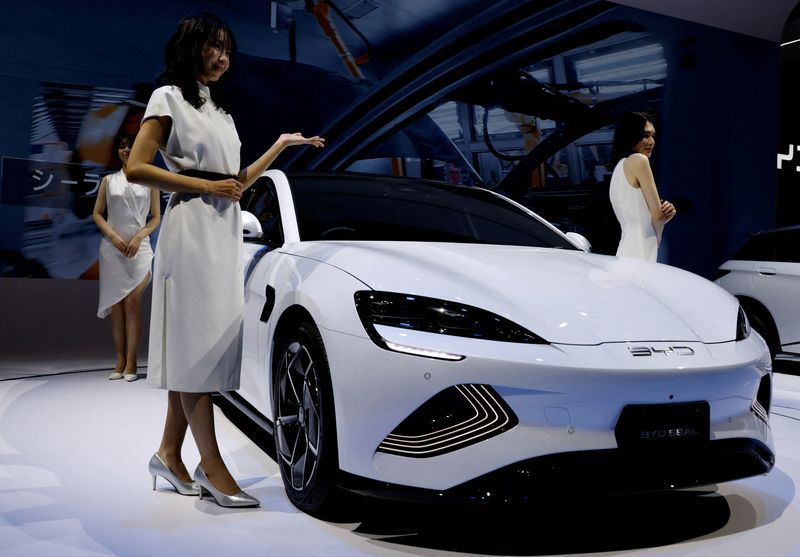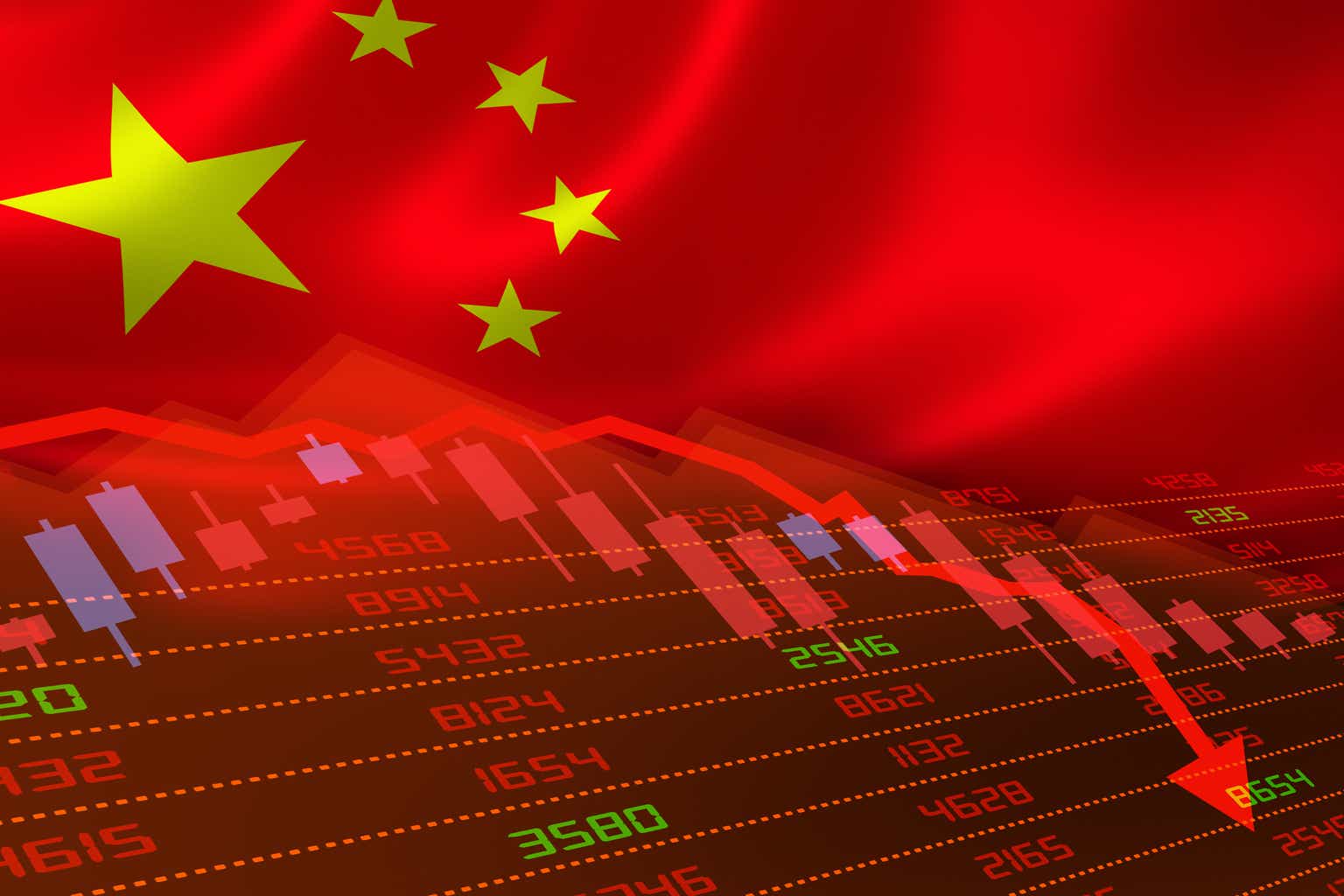European automakers face Chinese EV rivals, squeeze suppliers on costs By Reuters


© Reuters. FILE PHOTO: Models pose next to Chinese automaker BYD’s BYD SEAL during the Japan Mobility Show 2023 at Tokyo Big Sight, Japan, Nov. 1, 2023. REUTERS/Kim Kyung-hoon/file photo
Nick Carey
LONDON (Reuters) – European automakers and their already sprawling suppliers face a difficult year as they race to cut the cost of electric models to compete with Chinese rivals who are launching cheaper vehicles on their home turf. there is.
The biggest question is how much more pressure European automakers can put on suppliers who have already begun laying off workers, with many small and medium-sized businesses hit hard by supply chain issues during the pandemic.
The differences between Europe’s established automakers and their more EV-focused Chinese counterparts will be starkly evident this week at the Geneva auto show, which returns after a four-year hiatus due to the pandemic.
The only major company that holds media events is France. renault (EPA:), and China’s SAIC and BYD (SZ:) – two of the Chinese automakers targeting Europe.
Renault will launch the electric R5 and SAIC’s MG brand will unveil the M3 hybrid. Meanwhile, BYD’s Seal sedan was nominated for Car of the Year. If she wins, she will become the first Chinese model to win the prestigious award.
“They’re really like chalk and cheese,” Nick Parker, partner and managing director at consulting firm AlixPartners, said of established European automakers and their Chinese competitors.
Unlike European automakers, which rely on external suppliers with separate supply chains for fossil fuels and electricity, their Chinese competitors are highly vertically integrated, producing almost everything in-house and cutting costs.
This helps them weaken their European competitors. In the UK, BYD’s electric Dolphin hatchback starts at 25,490 pounds ($32,300), about 27% less than the equivalent ID.3 model from Volkswagen (ETR:). Tesla (NASDAQ:) works the same way.
AlixPartners’ Parker said chasing these competitors means European carmakers’ profit margins could be “seriously challenged” because there is only so much they can squeeze out of external suppliers.
The problem has become more difficult as the slower-than-expected transition to EVs forces traditional automakers to stick to dual supply chains. Data this week showed EU fully electric car sales in January were down 42.3% compared to December.
Renault and Stellantis (NYSE:) both emphasized EV cost-cutting efforts this month, while Mercedes lowered its expectations for EV demand and said it would update its traditional lineup over the next decade.
Stellantis CEO Carlos Tavares went further, telling suppliers that since 85% of the cost of an electric vehicle is related to purchased materials, they should bear a proportionate burden of reducing costs.
“I’m conveying that reality to my partners: If you don’t do your part, you exclude yourself,” he said.
Nickel and aluminum prices also rose this week as Western countries expanded their sanctions lists against Russia, highlighting ongoing risks to commodity prices despite no mention of either metal.
rundown
With Forvia, Continental and Bosch all recently announcing or warning of layoffs, many existing suppliers are already feeling the pressure of cost-cutting and more layoffs are expected.
Automakers have recently focused production on higher-margin models to maintain profits amid a semiconductor shortage, but that has meant lower sales and less upside for suppliers.
Now, industry experts say large, well-capitalized suppliers can adapt to the new reality, but warn that many smaller suppliers, like Germany’s Allgaier, which filed for bankruptcy last July, are at risk.
That means European automakers must strike a delicate balance between cutting costs to fend off Chinese rivals and avoiding putting too much pressure on suppliers. Philip Nothard, director of insight at dealer services company Cox Automotive, said car manufacturers may need to step in to bail out struggling suppliers.
“If (European automakers) try to mess with those suppliers too much, they run the risk of being placed under administration or forced to look for other markets,” he said.
($1 = 0.7878 pounds)



